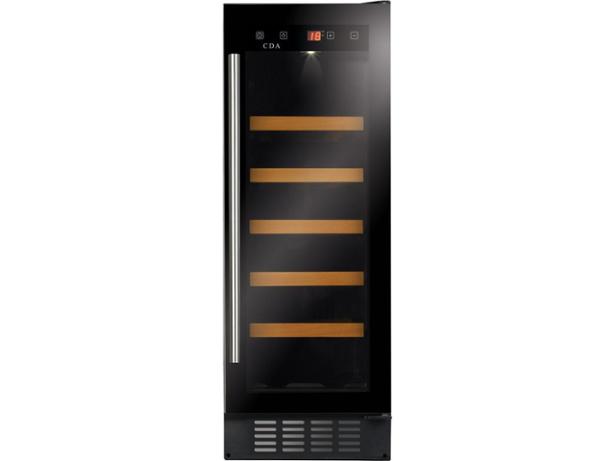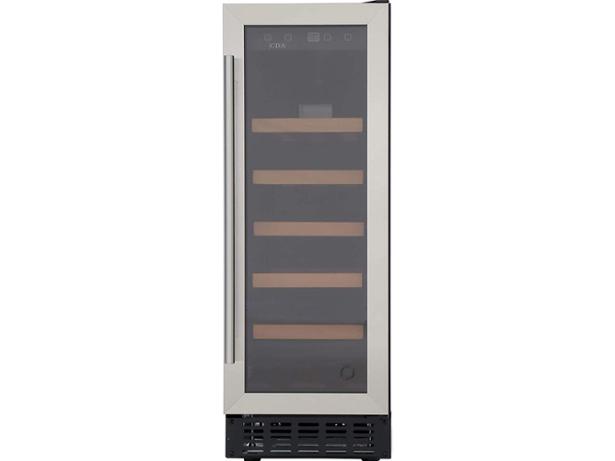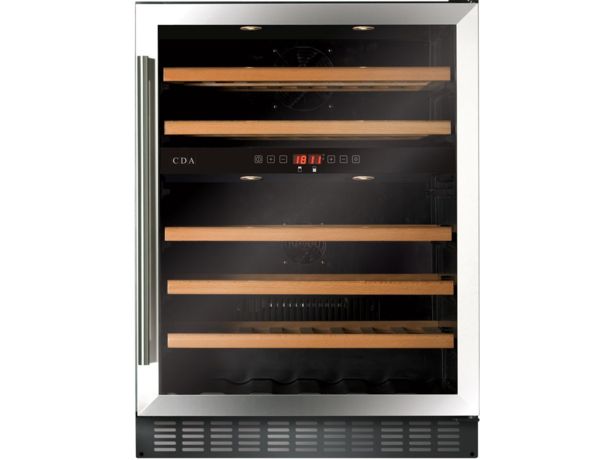How we test wine coolers

In this article
- Why our wine cooler reviews are different
- What are Which? Best Buys and Don’t Buys?
- How is the Which? score calculated?
- Can you trust the wine cooler thermostat?
- Will the wine cooler keep my wine at a stable temperature?
- How quickly will the wine cooler chill my wine?
- How much will the wine cooler add to my energy bills?
- How easy is it to use and clean the wine cooler?
You can't tell in the shops which wine coolers provide excellent temperature accuracy, powerful chilling and energy efficiency. That's where Which? comes in.
We put wine coolers through a full set of tough scientific tests to find the ones that excel in all these key areas. And we're not influenced by manufacturers.
We've tested some of the latest and most popular wine coolers to help you find the one that will provide the best home for your bottles.
Discover which models are the best in our wine cooler reviews.
Our reviews answer the most crucial questions about wine coolers:
Why our wine cooler reviews are different
Almost all free-to-access websites review wine coolers using an individual tester and generate scores based on that individual’s preferences. Free sites also typically get wine coolers free of charge directly from manufacturers or their PR representatives.
As well as using multiple testers in a lab-based scenario, the Which? overall percentage score is calculated purely on the measurements and ratings supplied by the lab, meaning there's no room for unconscious bias when giving an overall rating. We also buy every single product we test and do not accept free samples for any of our full lab tests.
What are Which? Best Buys and Don’t Buys?
Best Buy wine coolers impressed the most in our tests. Any wine cooler that scores 81% or more is a Best Buy and comes with a solid overall recommendation, although you should still read our reviews to check for any weaknesses that might impact your buying decision.
Meanwhile, wine coolers that score less than 45% are made Don’t Buys.
- Best Buy wine coolers tick the most important boxes – maintain an accurate and stable temperature, chill your bottles quickly to the temperature you want them at and use energy efficiently.
- Don't Buy wine coolers struggle in key areas – the temperature inside will fluctuate if the room they’re in gets hot or cold, they’ll take ages to chill your wine down to the desired temperature, will cost more than they should to run and might be noisier than normal, too.
How is the Which? score calculated?
The Which? overall score is a percentage. It only takes into account the results of our tests and ignores price completely. This means that all wine coolers are tested in exactly the same way so you can compare any, at any price, from any brand and know how it measures up against rivals.
Weightings and star ratings
A Which? overall score is made up of dozens of individual tests and checks, from key factors such as temperature accuracy and cooling speed, to ease of use and noise. This means that the most important things – such as how well a wine cooler can keep your bottles at the set temperature – will impact the score more than how easy it is to slide the shelves out.
To keep things simple, the most important scores are shown as star ratings out of five on each wine cooler’s 'Test Results' page as an easy-to-compare list of strengths and weaknesses, so you can quickly work out whether it's the right model for you.
Can you trust the wine cooler thermostat?
Getting your wine to the ideal serving or storage temperature is serious business. It's one of the key reasons wine enthusiasts buy a cooler. But with horror stories of bottles freezing and exploding in woefully bad appliances, simply assuming all wine coolers stay at the set temperature could prove to be a costly mistake.
To test this, we first set the room temperature to 20°C and fill the wine cooler to capacity. We place thermocouples inside a number of the wine bottles to give us accurate measurements of the temperature of the wine throughout the cooler.
We test single zone wine coolers by setting the appliance to 12°C and recording the temperature of the bottles inside to see if they can reach and maintain this temperature. For dual zone models, we set one zone to 12°C and the other to 7°C.
The best wine coolers hit the set temperature spot on, and stay there, but the lowest scorers are way off. Not only can poor accuracy mean you don't get to enjoy your wine at its very best, but in the worst cases you might find yourself opening the door to discover frozen bottles inside.
Will the wine cooler keep my wine at a stable temperature?
We test wine coolers to make sure they will keep your wine at the temperature you want it at. But room temperatures can vary widely over the course of a day and at different times of the year. So we raise the temperature in our test chamber to 32°C and see whether the wine remains safely chilled. We then lower the room temperature to a chilly 10°C and recheck the temperature of the wine.
How quickly will the wine cooler chill my wine?
While temperature accuracy and stability is vital to proper wine storage, chilling speed is an important consideration for many, too.
If you arrive home with a case of wine before a party and want it all chilled to the perfect serving temperature before your guests arrive, you'll want to know just how powerful your wine cooler is.
We fill each wine cooler with room temperature bottles of wine and record the time taken for these to cool.
How much will the wine cooler add to my energy bills?
It’s impossible to reduce a wine cooler’s running costs, as you can’t switch it off to save electricity. So it’s a good idea to buy a wine cooler that’s energy efficient for its size.
We measure how much energy each wine cooler uses to keep cool over 24 hours, as well as how much it uses to chill room temperature bottles.
We then calculate what this is likely to add to your energy bill.
To see whether a wine cooler is cheap to run for its size, we also rate its energy use against the number of bottles that can be stored inside – you can see the results on the 'Tech Specs' tab for each wine cooler review.
How easy is it to use and clean the wine cooler?
Some wine coolers are easier to use than others, and a seemingly minor irritant can soon become a major frustration after you’ve experienced it multiple times.
We rate ease of use, looking at aspects such as how smoothly the shelves slide in and out, how easily they can be adjusted (if at all), and how simple it is to refill and replace the water pot that helps regulate humidity in some coolers.
Although you won't find your wine cooler harbours crumbs and spills like a fridge or fridge-freezer, it's still useful to know whether it has any dust traps or awkward parts that are hard to get at with a cloth. We assess that and note any other convenience drawbacks that might influence your decision to buy.
Should I buy this wine cooler?
All of these tests contribute to a wine cooler's overall Which? test score. However, some tests are more important than others, so here is how each test contributes to the final score. The overall score ignores price and is based on:
- 35% temperature accuracy
- 17% cooling power
- 9% temperature stability
- 9% humidity control
- 10% energy efficiency
- 15% ease of use (includes cleaning)
- 5% noise and vibrations
A wine cooler needs to score 81% or above in our tough tests to qualify as a Best Buy. Wine coolers that score 45% or less are highlighted as Don't Buy models to avoid.
Our reviews also reveal our expert verdict on whether we think each wine cooler is a good buy for its price.



